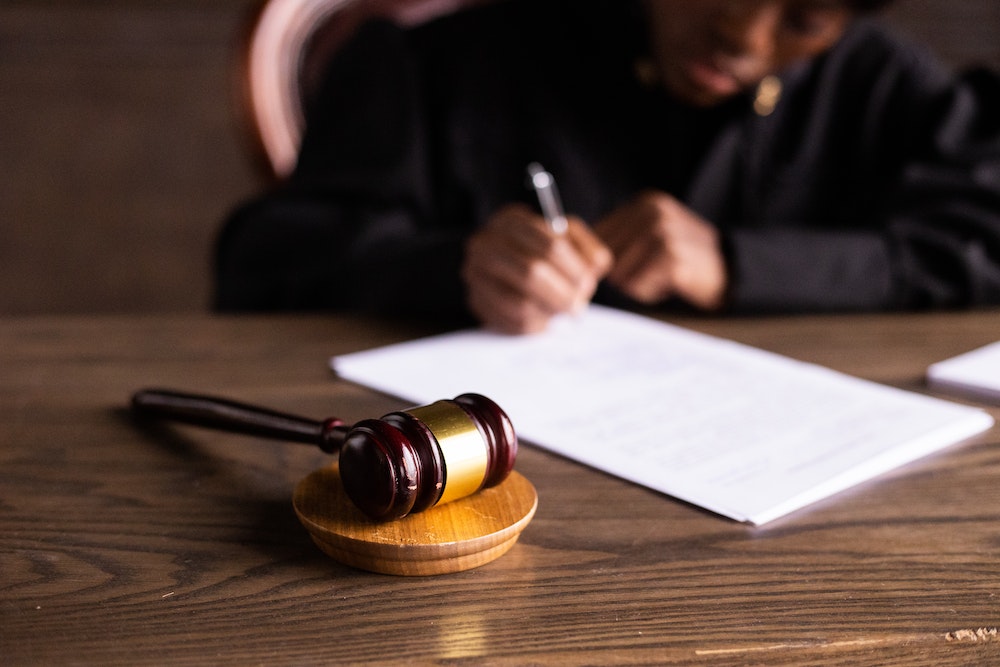What Happens During a Personal Injury Lawsuit?

If you have suffered an injury due to someone else’s negligence or intentional wrongdoing, you may be entitled to compensation for your damages.
One way to pursue compensation is by filing a personal injury lawsuit. But what exactly happens during the personal injury lawsuit process?
It can be a complex legal road to bring legal action against the responsible party, and a Columbus personal injury attorney can help you navigate it.
Phase 1: The Pre-lawsuit Stage
Before filing a lawsuit, it’s important to consult with an experienced personal injury attorney. During the initial consultation, your attorney will review the facts of your case and advise you on your legal options.
If you have a viable claim, the next step is gathering evidence to support your case. This may involve obtaining medical bills, accident reports, and witness statements. Additionally, you may need to file a claim with the at-fault party’s insurance company.
Phase 2: Filing a Lawsuit
If the insurance company denies your claim or fails to offer a fair settlement, you may need to file a lawsuit to pursue compensation.
This involves drafting and filing a legal document called a complaint with the court. The complaint outlines the facts of the case, the legal basis for the claim, and the type of damages (i.e. compensatory vs. punitive damages) sought.
The defendant must then be served with the complaint, which typically involves delivering a copy of the document in person or by mail.
Phase 3: Discovery
After the lawsuit is filed and served, both parties engage in the discovery phase. This involves exchanging information and evidence relevant to the case.
Common discovery methods include:
- Interrogatories — written questions the opposing party must answer under oath
- Requests for the production of documents — require each party to share documents related to the case
- Depositions — interviews conducted under oath, during which the deponent must answer questions posed by the opposing attorney.
Phase 4: Mediation and Settlement
Many personal injury cases are settled through mediation or negotiations rather than going to trial. This often allows for a less costly resolution to the case.
Mediation is a voluntary process in which a neutral third-party mediator helps the parties reach a mutually acceptable resolution. Settlement negotiations involve direct discussions between the parties or their attorneys to reach a settlement agreement.
If a settlement is reached, the parties sign a legally binding agreement that resolves the case.
Phase 5: Trial
If a favorable personal injury settlement amount is not obtained through mediation or negotiations, it may proceed to trial.
During a trial, the parties present evidence and arguments to a judge or jury, who will decide the case’s outcome. The trial typically involves several stages, including jury selection, opening statements, presentation of evidence, closing arguments, jury deliberation, and a verdict.
Phase 6: Appeals
If one party is dissatisfied with the trial’s outcome, they may file an appeal. Grounds for appeal may include errors in the trial court’s rulings, the jury’s verdict, or the conduct of the trial. To appeal a case, the dissatisfied party must file a notice of appeal with the appropriate court within a specified time period.
The appeals process involves briefing and oral arguments before a panel of appellate judges, who will review the trial court’s decision and determine whether any errors occurred that require reversal or modification of the decision.
Need Help With Your Injury Case? Contact a Columbus Personal Injury Lawyer
The personal injury lawsuit process can be complex and time-consuming but it provides a mechanism for injured individuals to seek compensation for their damages. Each stage involves careful planning, legal strategy, and effective communication, from the initial consultation with an attorney to the trial and appeals process.
Whether your case is resolved through mediation or proceeds to trial, working with a skilled and experienced attorney who can guide you through each stage is important.
If you need help navigating the process, contact us today at The Jones Firm. We’ll ensure your personal injury case is handled carefully and you receive the compensation you’re entitled to.
FAQ: Ohio Personal Injury Lawsuits
How long does a personal injury lawsuit take?
The length of a personal injury lawsuit depends on various factors, such as the case’s complexity, the number of parties involved, and whether the case is settled or goes to trial. Some cases can be resolved within a few months, while others may take several years.
Can I file a personal injury lawsuit without an attorney?
While it is possible to represent yourself in a personal injury lawsuit, it is generally not recommended. Personal injury law is complex, and an experienced attorney can help you navigate the legal process and ensure that your rights are protected.
What happens if I lose my personal injury lawsuit?
If you lose your personal injury lawsuit, you may be responsible for paying the defendant’s legal fees and court costs. Additionally, you will not receive compensation for your damages unless you receive a favorable outcome through the appeals process.



